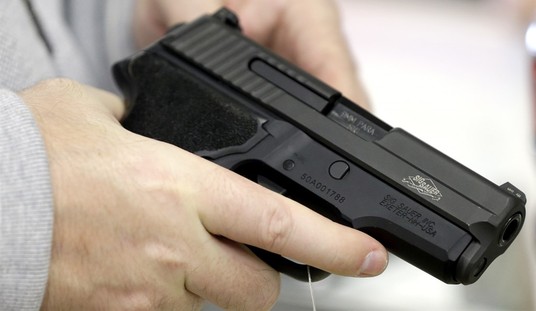Maryland has gone deep down the anti-gun rabbit hole of late. They were never particularly friendly toward the Second Amendment, at least not that I can remember, but they're downright hostile toward it now.
The reason is, like in so many other anti-gun states, there's one city that has a massive problem with violent crime, particularly those involving guns, and so everyone else in the state must pay the penalty for that. What makes this more infuriating is that those who are committing the crimes generally didn't get their guns lawfully in the first place. A small segment might have, but most got them through various illicit means.
Regardless, Maryland is what it is.
Now, amid concerns that the Trump administration might do things they don't like, they're launching a data dashboard that supporters think will help address so-called gun violence.
For the first time in a long time, there’s a tangible sense of progress in Maryland’s fight against gun violence. After years of being among the states with the highest rates of firearm homicide, Maryland is seeing a significant and sustained drop, driven in large part by a dramatic turnaround in Baltimore.
But state leaders and community partners know this progress is fragile — and that it could be fleeting. In hopes of keeping up the momentum, they’re arming themselves with better data.
This month, the Maryland Department of Health launched the Firearm Violence Data Dashboard, a public, near real-time portal designed to give officials, researchers, and community violence prevention groups the information they need to quickly and strategically respond to trends in shootings.
“We are seeing early signs that investment in evidence-informed laws and violence prevention programs can save lives,” said Maryland Health Secretary Dr. Meena Seshamani. “Our ultimate goal with these resources is to develop, in partnership, data-driven solutions that will save the next life, protect the next family, and heal our communities.”
Maryland’s initiative is a deliberate step to take control of its own path forward, as federal support for violence prevention and data collection is being cut. The new system is built to be immune to the political turmoil and funding uncertainties in Washington, D.C.
Now, the claims of what worked in Baltimore are something I'm not going to get into. Cam has already addressed that perfectly well, and I have no desire to write that same piece all over again. Needless to say, I agree. Gun control--the "evidence-informed laws" in question--had nothing to do with it.
But what about a data dashboard? Is that a good or a bad thing?
It's really neither, necessarily. Assuming it's raw data that isn't massaged in any way, it's a neutral look at what's happening in various parts of the state from a crime statistic standpoint.
In fact, it's entirely possible that the data will reveal that the gun control laws in question aren't actually working as advertised.
Should that happen, I'm sure the dashboard will be pulled down as quickly as possible, with some vague allusions to funding and an attempt to shift it onto some pro-gun politician somewhere along the way.
The real issue here is that it's all predicated on gun control being the way forward, though, and that's where I have the biggest issue with something like this. Data is, in and of itself, neutral. How people use that data and what they use it to justify isn't, and that's where I have an issue. Especially since I've seen the mental gymnastics anti-gunners can perform in order to justify whatever they want.
Editor’s Note: The Democrat Party has never been less popular as voters reject its globalist agenda.
Help us continue exposing Democrats' plans to lead America down a dangerous path. Join Bearing Arms VIP and use promo code FIGHT to get 60% off your membership.








Join the conversation as a VIP Member